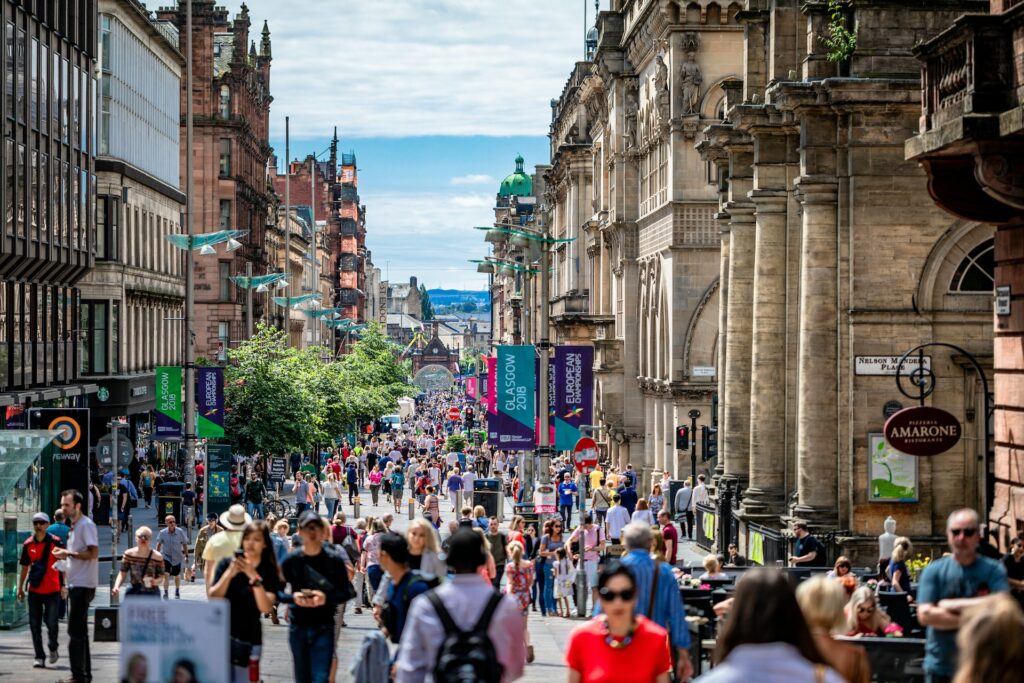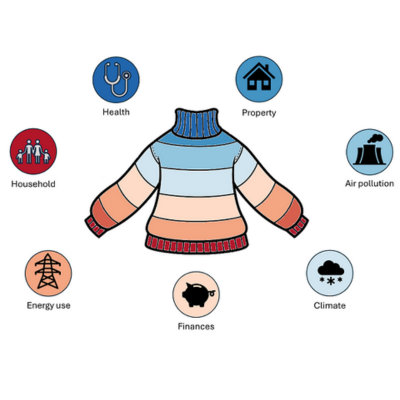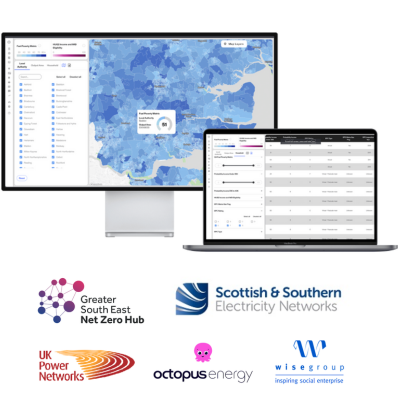In 2013, Glasgow beat a host of other UK cities to win funding worth £24m from Innovate UK. The funding was awarded with the goal of creating a program that would allow the city to explore new and innovative ways of using data and technology to make life in the city safer, smarter and more sustainable. In other words, to make Glasgow a ‘Future City’.

Open data was identified as one of the key drivers that would help Glasgow realise its vision to become the UK’s Smartest City. This was based on the knowledge that open data improves transparency, accountability and leads to innovation in the marketplace.
As open data experts, a group of consultants who would later move on to form UrbanTide led the development of Glasgow’s Open Data processes to embed a legacy pipeline for open data in the city.
The challenge: Glasgow as a new Future City
Opening up city data was identified as a main lever to helping Glasgow realise its ambition to become the UK’s smartest city. This was because, cities like Glasgow hold vast amounts of valuable data, but much of it is difficult to access. Typically, it’s locked away within organisations that use their data for a specific purpose but not necessarily understanding the value it could provide to the city as a whole.
By encouraging organisations across Glasgow to make non-sensitive and non-personal data discoverable online, this would give the city (the public, voluntary, academic, private sectors and communities) the opportunity to harness it and use it in ways that would help make Glasgow a better place to live, work and play.
The key challenges with the Future City Glasgow programme were to:
- Deliver a world-leading Open Data solution
- Define and meet targets for Open Data set publication and Open Data set re-use
- Embed new Governance arrangements for the publication of Open Data
- Offer scalability for other public sector and private sector organisations
- Deliver in a tight timescale (May 2013 – August 2014).
Developing an Open Data toolkit
As part of the Future City Glasgow program, UrbanTide developed an Open Data Toolkit that would function as a framework for accelerating Glasgow towards becoming a Future City.
The Open Data Toolkit comprised of:
- Data Prioritisation Strategy: Plan for success by identifying the open data sets that offer the best return on investment.
- Data Manifesto: Set out leadership visions and goals for open data as a focal point, policy driver and motivational tool.
- Barrier identification and resolution: Develop and put in place resolutions for overcoming technical, resourcing and cultural barriers.
- Data Compliance: Integrate with City practices on data compliance and find the most efficient solution for delivery.
- Target setting: Define targets for the number, type and quality of Open Data sets and the level of re-use as Open Data.
- Sell the Benefits: Engage with internal and external stakeholders to gain buy-in for Open Data publication.
- Engage Communities: Deliver an engagement programme that inspires the re-use of Open Data.
Find out more about the Open Data toolkit project here.
Glasgow’s City Technology Platform
As part of the Future Cities Glasgow development program, UrbanTide also delivered the City Technology Platform. This was a state-of-the-art data insights platform that would collect and integrate open data to help the city reap the benefits that valuable data could offer.
The platform was comprised of the following key technical components:
- Data collection services – integrating with existing back end operational systems.
- Cloud-based data integration – storage services for a future proofed and scalable solution.
- Data publication – services creating APIs for all data sources.
- Front-end integration services – utilising the Open Source Open Data solution CKAN.
The City Technology Platform provided a key technical component to help create innovation and business opportunities within Glasgow and the rest of the UK.
The results
Glasgow now publishes the second highest number of open data sets of any city in the UK (surpassed only by London) and have delivered key benefits in terms of transparency and market-led innovation.
The Future Cities Demonstrator Programme provided a unique opportunity to demonstrate the value of Smart City principles and technologies at scale within the UK, and the City Technology Platform provided a key technical component to help deliver against this opportunity.
The Glasgow Open Data Hub is a data insights platform that is now powered by the City Technology Platform. It holds over 400 data points from various organisations across Glasgow that are open for reuse.






